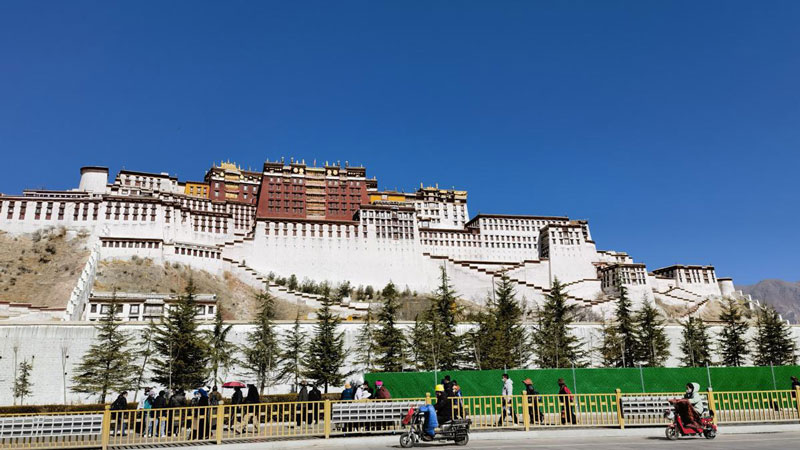U.S. long-arm jurisdiction harms int'l order, rule of law
BEIJING, Feb. 3 (Xinhua) -- The United States has a longstanding practice of exerting frequent long-arm jurisdiction over other countries, which severely harms the international political and economic order and the rule of law.
In essence, long-arm jurisdiction is an arbitrary judicial practice wielded by the U.S. government on the strength of the U.S. hegemony to enforce extraterritorial jurisdiction over entities and individuals of other countries on the ground of its domestic law.
In line with international law, the exercise of a country's jurisdiction over an extraterritorial person or entity generally requires that the person or entity or its conduct has a real and sufficient connection to that country. Yet the United States exercises long-arm jurisdiction on the basis of the "minimum contacts" rule, constantly lowering the threshold for application.
Meanwhile, to exercise long-arm jurisdiction, the U.S. government has further developed the "effects doctrine," meaning that jurisdiction may be exercised whenever an act occurring abroad produces "effects" in the United States, regardless of whether the actor has U.S. citizenship or residency, and regardless of whether the act complies with the law of the place where it occurred.
Long-arm jurisdiction has become a means by which the United States abuses unilateral sanctions, especially secondary sanctions. According to the Treasury 2021 Sanctions Review, by fiscal year 2021, the number of active U.S. sanctions designations had increased to more than 9,400.
U.S. sanctions have strained relations between countries and undermined the international order. So far, the "long arm" of U.S. jurisdiction has reached China, Russia, Iran, Syria, the Democratic People's Republic of Korea, Cuba, France, Britain, Germany, Japan, among others.
Long-arm jurisdiction has become a tool for the U.S. authorities to interfere with normal international commercial exchanges and competition.
In 2013, in order to beat Alstom in their business competition, the United States applied the Foreign Corrupt Practices Act to arrest and detain then Alstom's senior manager Frederic Pierucci on charges of bribing foreign officials. He was further induced to sign a plea deal and provide more evidence and information against his company, leaving Alstom no choice but to accept General Electric's acquisition, vanishing ever since from the Fortune 500 list.
In an article published in Foreign Affairs magazine, Professor Daniel Drezner of Tufts University criticized successive U.S. administrations for abusing economic coercion and economic violence, and using sanctions as the preferred solution to diplomatic problems, which have been causing humanitarian disasters.
When COVID-19 was raging across the world, the U.S. government did not relent in imposing unilateral sanctions on Iran, Syria and other countries, making it difficult for these countries to obtain the much-needed medical supplies to fight the virus. As a result of the sanctions, Iran has been cut off access to essential medicines and medical equipment, putting the health of millions of Iranians in jeopardy.
Long-arm jurisdiction not only undermines the principle of sovereign equality, violates international law, and erodes the multilateral order with the United Nations at its core, but also creates and intensifies tensions and conflicts among major countries, and poses a threat to the international security system established after World War II. It also interferes with and distorts normal international commercial exchanges and trade order, disrupts the supply chain of global trade, damages the interests of enterprises and raises their operating costs.
The United States should renounce its illegal unilateral sanctions and long-arm jurisdiction measures, and truly take up its international responsibilities as a permanent member of the UN Security Council.
Photos
Related Stories
- U.S. technological hegemony reveals foul imperialist mentality
- The U.S. Willful Practice of Long-arm Jurisdiction and its Perils
- Tyre Nichols' death once again exposes U.S. scars of police brutality, racial prejudice
- Filipinos speak out against U.S. military expansion plans
- Weekly storage of natural gas in U.S. down
Copyright © 2023 People's Daily Online. All Rights Reserved.









